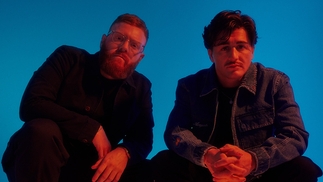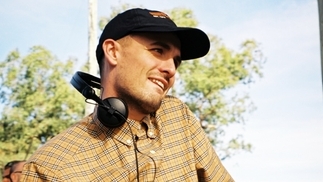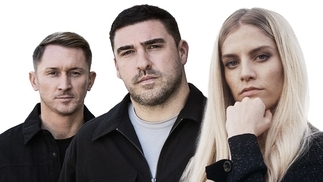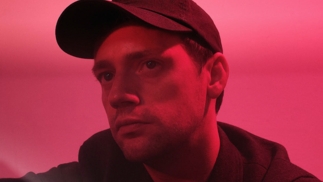DJ Fresh talks health scares, sobriety, and producing records for the world's biggest artists
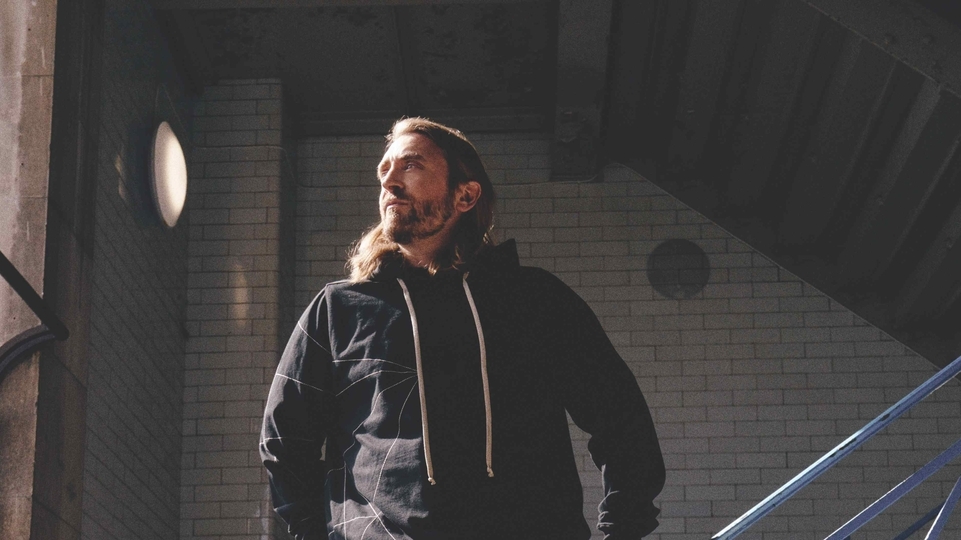
DJ Fresh has had a life of vertiginous highs and crushing lows — from his time in drum & bass supergroup Bad Company, to having No.1 hit records, to battling health scares and cancer. Now he’s in a better place than ever, sober and balancing a career working in artificial intelligence systems with producing hit records for artists like Kylie Minogue. DJ Mag meets him to discover how he’s weathered the storm...
DJ Fresh still vividly remembers where he was the moment he knew his health was in trouble. “I was sitting in traffic on the Hammersmith flyover, driving home from the airport after a weekend of gigs,” he says. “I woke up on the bridge — I’d just passed out at the wheel. When I came round, my first thought was relief that I hadn’t driven over the side. Then there were sirens, and the police turned up. Luckily, somehow, and I don’t remember how, I’d broken my clutch. I didn’t think it was a good idea to tell the police I’d just passed out at the wheel, so I just told them that my clutch was broken, and thankfully that was that.”
Fresh’s health was indeed at risk. Little did he know at the time, he was suffering from a tumour in his pancreas, a condition that doctors repeatedly failed to diagnose over the coming months. Some even went as far as suggesting that the problems were psychosomatic rather than physical.
“In the end it was an incredible doctor,” Fresh says. “I have to give her a shout-out by name, because she is worthy of my gratitude — Diane Brown — who discovered what it was. The tumour turned out not to be cancerous, though that particular disease was to haunt him later on. Still, the operation to remove it was a major one, and proper recovery required several weeks’ stay in hospital. The whole episode, which happened around the turn of 2009 and 2010, marked the end of an era for Fresh, an end which perhaps he already sensed was coming. The years since he first came to the attention of the drum & bass scene as part of second generation crew Bad Company — which also featured dBridge, Maldini and Vegas — had sped by in a blur. Anyone who visited the collective’s studio, above an inconspicuous looking Cafe Rouge in Hampstead, North London, would have sensed the fearsome energy by which they worked. Through clouds of green smoke, and working a grungy monster of a mixing desk which had its own inbuilt ashtray, and was reputed to have been the one with which heavy rock icons Deep Purple made their classic ‘Machine Head’ album, they got to work on a succession of individualsounding, techy tracks which helped to define the second generation of d&b. Original innovator Dillinja once said, “people don’t understand the pressure drum & bass artists are under”, and Bad Company seemed to thrive on that pressure. From the studio, where their four-strong line-up meant someone always had an idea to take a track forward, to the sound of anthems such as ‘The Nine’ and ‘The Pulse’, the feeling of frantic zeal was palpable. It certainly ensured that they were consistently THE name on the lips, and indeed the turntables, of everyone in the early 2000s.
When the band went their separate ways, Fresh formed the Breakbeat Kaos label with Adam F, which pushed the limits of what a drum & bass label could achieve, taking singles into the ‘proper’ charts and eventually scoring a massive-selling album with the Pendulum debut, which Fresh worked on closely with the Australian three-piece in an A&R capacity. As if that wasn’t enough, he also launched the Dogs On Acid website, a talk board and community where d&b fans could vent their frustrations and gossip.
“I guess you could trace my interest in technology back to Dogs On Acid,” Fresh says. “This was the early days of the internet, there was no Facebook and all that, it was kind of like the wild west.”
DIGGING FOR GOLD
In addition to all that, Fresh’s solo career continued to burgeon, with DJ bookings now coming in from all over the world. But as 2010 approached, even before the discovery of his tumour, he knew things couldn’t stay the same. “I was already at a point where I needed a change,” he says. “Every new tune I started, it felt like I couldn’t do anything that sounded fresh to me. Drum & bass had been this incredible thing, not only in terms of the music but also culturally. I mean, I’ll probably get my head cut off for saying this, but I’d never really known any black guys when I was growing up and going to school. The whole thing, from the rave movement and the illegal M25 parties, to the Criminal Justice Bill, had been this merging of white culture and black culture. Drum & bass had always been the cutting edge, but that was changing.”
He even considered giving up making music around that time, having penned a few more songs — rather than tracks — one of which, called ‘Gold Dust’, had been signed to Ministry Of Sound. He remembers discussing the issue with his mother while recovering in hospital after the operation to remove the tumour. “She was talking about this book she’d read called The Alchemists by Paulo Coelho, which is about two brothers digging for gold. One brother gives up, and the other one finds the gold. She told me, ‘You’re probably one shovel away from gold’. Three weeks later, while I was still in hospital, ‘Gold Dust’ had gone to No.1, and I was being namechecked on daytime TV. It was so weird.”
The first thing that had to change was Fresh’s location. He’d built a studio in his home, a houseboat close to where the Grand Union Canal meets the River Thames in Brentford. It’d been perfect for a while, although on one occasion he’d had to wade through water with his record box held above his head, having discovered the pontoon connecting the boat to the shore was flooded.
“I turned up at Fabric soaking wet,” he says, laughing. But being in London, even in this slightly inaccessible location, had distinct disadvantages for someone attempting to take it easy. “Because everyone knows where you are, people would turn up in the middle of the night. The final straw came one Sunday, when someone I hardly knew turned up. I was like, ‘What do you want?’ and he was saying, ‘I thought we could get on a tune’.” The other downside to being in London was the noise factor. “No matter how much soundproofing you do,” Fresh says, “it’s difficult to stop the noise completely. You know there are going to be times when you’re going to be a bad neighbour, when you’re making tunes. Usually I liked my neighbours, so I felt bad, but there’s no way around it in London.”
RELOCATION
He relocated to a small village on the edge of Oxford, and set up a studio in his new house with a view to moving into producing other acts, the kind of space where artists could stay for a few days and really throw themselves into making music. Setting up a ‘production camp’, as he calls it, took off immediately.
“I was working with people that I never would have dreamed of working with the year before. I worked with rappers from the ’hood, with Kylie, the Pet Shop Boys, Ellie Goulding...” This different way of working was a refreshing adjustment certainly, and the more relaxed lifestyle that the countryside offered mellowed even further when Fresh met his wife, not long after moving out of the capital. But production work wasn’t satisfying his creative urges completely, and in any case, his own musical career was going from strength to strength.
Almost inadvertently, Fresh had forged a new path for drum & bass to follow out of the underground and into the mainstream. ‘Gold Dust’ had been conceived almost as a farewell to the genre. Instead, it opened a door to commercial success for the song-based side of the music, culminating in Fresh’s case with the massive anthem ‘Hot Right Now’ featuring Rita Ora, but also paving the way for artists such as Sigma and Wilkinson, and even the hugely successful Rudimental, to follow in his wake. Fresh ended up scoring no less than eight UK Top 10 singles across this decade, clocking up something close to three million sales and a reported 157 million plays on YouTube. He continued to DJ across the globe too, and despite his previous ill health, threw himself into the task once again.
“I always partied quite a lot when I was DJing,” he admits now, adding that in retrospect, he can now see he was also, in his own words, “an insane workaholic”. With this relentless lifestyle beginning to take its toll on his strength and morale once again, he went completely sober in 2015. “I haven’t touched a drink in four years,” he says. “I remember doing my first gigs without drinking, which was pretty weird, but I had so much more energy as a result.” But in the end, ditching the stimulants would prove to be only one part of the solution. The workaholism remained. He recalls, with a mixture of horror and amusement, his reaction to being diagnosed with the advanced stages of cancer two years ago.
“The doctor said I was going to have to clear my schedule for a good five or six weeks, but I had a load of gigs booked, so I was like, ‘How about three?’ He said, ‘We generally tell people not to antagonise their recovery’, and there I was thinking about jumping up and down onstage.” The cancer diagnosis came out of the blue. Fresh had been suffering from a bad back, and had gone for a couple of scans to discover what was causing it. “They were looking for a slipped disc, but they found something else.” The scan detected what he calls “final stage cancer” in his thyroid glands, necessitating a serious, urgent operation.
When he asked for some time to think the matter over — with one eye on his DJ diary, no doubt — the doctor put it bluntly. “He told me, ‘You don’t have that luxury’.” It was now or never. Do or die, quite literally. Fresh openly admits he did fear his number might be up, shocked not only by the cancer diagnosis, but also its advanced stage. “I did think I might die,” he says. “It’s the big key reason why I’ve made serious changes to the way I was living my life.”
PERSPECTIVE
In the end, and having had his thyroids removed in the operation, he found it unthinkable that he even considered playing gigs during his recovery. “I was taking a pill every eight hours that was keeping me alive,” he says. “The thought of my medication going missing while I was on the other side of the world where things aren’t quite as well-organised as they are here, was terrifying. But in any case, I just about had the energy to get up and make it to the couch each day.” The operation and aftermath may have been traumatic, but Fresh says they also brought him the perspective on his life that he’d been craving.
“It made me realise nothing is permanent, nothing really matters — all those other things, all those expectations — once you’re gone.” It was a decision that was reinforced by the shocking and sudden suicide of Avicii in April of last year. “He wasn’t someone I knew particularly well,” Fresh says, “but our paths had crossed a few times, because my show on Capital used to be followed by his. But that really hit home for me. You can be flying all over the world and playing sold-out shows, but depression doesn’t respect that at all.”
As it turned out, the solution to Fresh’s peace of mind actually lay beyond music — although given the technical extremes that his early career pushing the boundaries of drum & bass production required, it was a world that was almost parallel. Fresh’s interest in artifi cial intelligence and machine learning was initially piqued by the rise of the logirhythmruled world of streaming, which had emerged as the premier form of music consumption. “I wanted to discover how it all worked,” he says, “and once I started, I really disappeared down the rabbithole.” He enrolled in a three-month coding bootcamp in rural Hertfordshire, alongside a host of other professionals who were considering career changes.
“Most people used to go off and do other things in the evenings or at the weekend, but me and one other guy just spent the whole three months working solidly. I had to really go back to the beginning — I’d always thought I was rubbish at maths.” Rejuvenated by the new challenges, he became fascinated by the possibilities of AI, although he’s keen to point out, “I can reassure your readers there’s nothing scary about it, there’s no prospect of a Terminator coming back from the future to get us”. He put music on the back-burner and started working fulltime for a company nearby in Oxfordshire.
“They specialise in research and development for education,” Fresh says. “I didn’t want to go and use my skills to make a rich corporation even richer. But there are many more jobs in tech than there are people to fill them, and there’s a real digital revolution going on. It’s a really great time to be a creative person.” With this new lease of life that almost two years out of the game has given him, Fresh is now ready to return to the musical arena. There’s a collaboration with an internationally known young female vocalist that is being lined up for imminent release on Ministry Of Sound. The label wants us to remain tight-lipped about the single’s finer details, but having been given a sneak preview, we can reveal that it’s heavily influenced by ‘moombahton’, a fusion of house and reggaeton sounds, and is surely destined to be one of the biggest tunes of this year’s Notting Hill Carnival.
He’s also lining up shows for the end of the year, although he says from now on, he’s going to be careful to only say yes to the gigs he really wants to do. He’s even doing a few bits of production again. “Kylie Minogue is coming to the studio tomorrow,” he says, excitedly. “She’s great. Just like you would have imagined her to be from watching Neighbours all those years ago.”
But there’s also another project that Fresh will be dropping soon, not a single or album, but an app that he promises will make waves. His interest in AI, in other words, will be working alongside and in tandem with his musical advances from now on, as his closing comments confirm.
“Guys like Dan Abramov, who does redux for Facebook, they’re like the new rock stars,” he says. “I look at him the same way I used to look at Andy C.”
